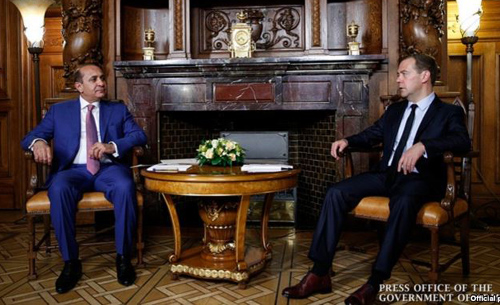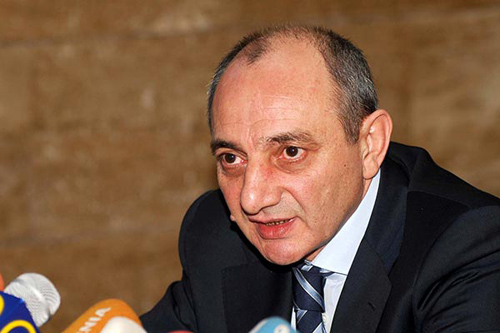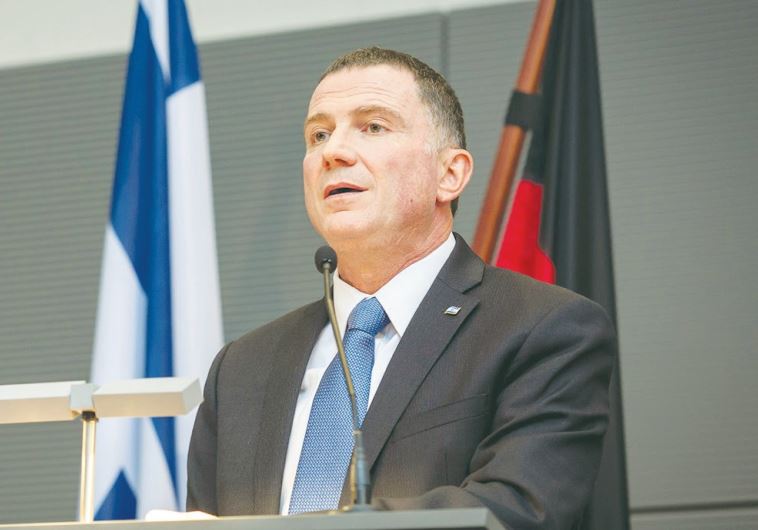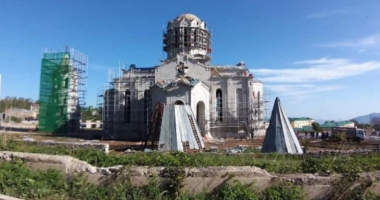MOSCOW (RFE/RL) — Russian Prime Minister Dmitry Medvedev and his visiting Armenian counterpart Hovik Abrahamian discussed on Thursday the fallout from dramatic street protests in Yerevan against an electricity price hike that was initiated by Armenia’s Russian-owned power grids.
Medvedev reiterated Russian concerns over the unrest in his opening remarks at their talks in Moscow publicized by his press service. He said he and Abrahamian will look into “some issues of energy cooperation” between Armenia and Russia which are “relevant to the present day.”
“And in general, I would like to hear your opinion about how events are developing in your country because the recent period was quite heated,” Medvedev told Abrahamian. “We are closely watching what is happening in Armenia because you are our neighbor, ally and close state, and we are certainly not indifferent to how events unfold in a friendly country.”
“Things are very stable in our country right now,” replied Abrahamian. “Armenia is making every effort to bolster its allied partnership with Russia.”
An Armenian government statement on the talks said the two men discussed “recent internal political developments in Armenia” and Russian-Armenian energy ties that have long been central to power generation and distribution in the South Caucasus state. It gave no details of that discussion.
The statement added that Medvedev and Abrahamian met tete-a-tete before being joined by senior officials from their governments, including Armenian Energy Minister Yervand Zakharian, to explore ways of “further strengthening Russian-Armenian trade and economic relations.” It reported no concrete agreements to that effect. Medvedev’s office also said nothing about the results of the talks.
A Russian-Armenian intergovernmental commission on economic cooperation already discussed the situation with Armenian electricity supplies in Yerevan on July 26, at the height of a nonstop demonstration there against the more than 17 percent surge in energy tariffs. It agreed on the need for an emergency audit of the Electric Networks of Armenia (ENA) that would determine whether the price hike was justified or resulted from corruption within the power utility owned by Russia’s Inter RAO group.
The commission’s Russian co-chair, Transport Minister Maxim Sokolov, also discussed the matter in separate talks with President Serzh Sarkisian and other senior Armenian officials. Sarkisian announced on June 27 that the Armenian government will subsidize the tariffs until the release of the audit’s findings.
The source of that subsidy remains unknown, with officials in Yerevan saying only that no funds will be diverted from the Armenian state budget for that purpose. This issue might have been on the agenda of Thursday’s Russian-Armenian negotiations.
Welcoming Abrahamian in his office, Medvedev spoke of “certain proposals” submitted by the Armenian side ahead of the talks. He did not disclose them in his opening remarks.
The two premiers, who had a phone conversation on July 1, may have also discussed Inter RAO’s reported desire to sell the heavily indebted and loss-making ENA to another firm. The Yerevan daily “Haykakan Zhamanak” insisted earlier this week that the ENA will soon be acquired by the Tashir Group of Samvel Karapetian, a Russian-Armenian billionaire. It said the interested parties are now hammering out complex financial terms of the deal.
Russian officials have made no secret of their fears that the “Eletric Yerevan” protests could degenerate into the kind of a Western-backed popular revolt that overthrew Ukraine’s pro-Russian President Viktor Yanukovych over a year ago. Russian Foreign Minister Sergey Lavrov warned on July 2 against attempts to “develop these processes in a political direction.”
“You know how the color revolutions began — the Maidan [movement] in Ukraine, the current events in Armenia,” Lavrov said at an international youth forum in Moscow.
In an apparent effort to bolster Sarkisian’s positions at home and at the same time placate angry Armenians, the Russian government has made a number of concessions to Yerevan over the past two weeks. In particular, it was announced on June 26 that Moscow will give Yerevan a $200 million concessional loan that will be used for supplying more Russian-made weapons to the Armenian military.
Russian defense officials went on to reveal that they are holding negotiations on the delivery of Iskander-M missile systems to Armenia. The sophisticated missiles would significantly boost the Armenian side in the ongoing arms race with oil-rich Azerbaijan.
In addition, Moscow has agreed to allow Armenian authorities to prosecute and try a Russian soldier accused of murdering an Armenian family in Gyumri last January.










